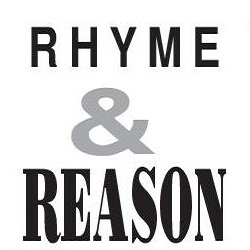The Great Surrender-2
Date :25-Oct-2024

By Kartik lokhande
Social and
technological surrender poses the risk of
destabilising the
country from within, as it seriously cripples intellectual pursuits, disrupts inter-personal communications,
damages processing ability, jeopardises inherent value systems, and puts in peril the
all-important issue of social harmony. All these put together
create a sense of
anxiety and irritability in society, which
ultimately leads the masses towards
anarchist behaviour chasing the false dream of getting rid of all the perceived evils.
A COLLECTION of good individual practices forms societal norms that aim at larger collective interest. However, a growing collection of undesirable individual practices forms a trend that eventually takes the shape of social surrender. Just as cultural surrender has far-reaching consequences, the social surrender has ugly potential to lead the society towards anarchist behaviour that threatens the interests of everyone in the country.
Social and technological surrender poses the risk of destabilising the country from within, as it seriously cripples intellectual pursuits, disrupts inter-personal communications, damages processing ability, jeopardises inherent value systems, and puts in peril the all-important issue of social harmony.
All these put together create a sense of anxiety and irritability in society, which ultimately leads the masses towards anarchist behaviour chasing the false dream of getting rid of all the perceived evils. There are multiple examples of this surrender.
For instance, the institution of marriage is being viewed as something orthodox, and hence, undesirable. The acceptance to this thought is out of the flawed notions of individualism, privacy, and above all out of the fear of commitment towards one’s duties. Only the weak choose the path of no commitment. These people then cite all sorts of foreign concepts including live-in relationships that do not have any in-built mechanism of responsibility if it does not work out.
The concept of individualism is tied to selfish interests and more to being wasted than being independence. However, this foreign-originated confining concept has got acceptance due to amplification of the message through social media. Whereas, the Indian concept is rooted in an individual being a part of the whole, that is, universe. This is more of a liberating concept, realisation of which arouses the sense of responsibility towards ownself and others and sense of sharing and caring.
The sense of sharing and caring, which has been the virtue of Indian society, is being destroyed with the furthering of the narrative of ‘multiple social identities’. Instead of looking at social variations from the positive lens of diversity, society is surrendering to the adversarial approach emanating from identity politics.
In the process, the ‘surrendered’ forget that disagreements do not matter when national security is compromised. But, by the time realisation comes the nation is already into anarchy.
And, the so-called social media is aiding the process of leading societies across the world into anarchy. The social media is, paradoxically, proving to be a tool for making people anti-social as they are cut-off from family tree, home values, true friendship, commitment to duty, social responsibility etc. It is making more people feel that meaningful engagement is restrictive and judgmental. Every pursuit is getting linked to likes, shares, subscriptions that can be generated using bots. But, that is being treated as a meaningful engagement and pursuit of life! In this process of likes-shares-subscriptions, many people, particularly the youngsters, are becoming mules of ‘trends’. Unfortunately, this fear of missing out on participating in a ‘trend’, is stripping them of firmness (not to be misunderstood as arrogance) of pursuit and personality, which is an essential leadership quality. This stripping off of leadership quality in demographic dividend is affecting the nation’s ability to produce leaders, but most are celebrating the advent of followers. For winning followers, one has to follow many. In this sad state of affairs, a society and a nation tends to become mental and intellectual slave of external forces.
Now, those out there to subjugate a country socially, culturally, and intellectually have turned their eyes towards children too. An example of this popped up into public consciousness during and after COVID-19 pandemic, in the form of online education. It has taken the shape of emphasis on objective questions, instead of subjective ones.
This is compromising a child’s ability to think deeply, creatively, and imaginatively. But, again, schools relying more on use of technology, laying greater stress on ambience than on quality of well-rounded academics are considered as the best ones.
Such an educational compromise is a sub-set of social surrender. For, those making such surrender forget that most of the great personalities of India have come from ordinary schools with great teachers. Polish of personality does not come from external factors but from quality of inner pursuits.
In the name of giving technological edge, educational institutions are aiding the process of addictive screen-time that is seriously damaging the grasping ability and power of imagination of the children.
Artificial Intelligence (AI) has just accelerated this downslide. This is not to say that all things related to technology, social media, AI are bad. But, this is to stress that unless someone develops own ability to discern good from bad, exposure of a person to such things may be dangerous. Here comes the element of ethical use of technology. Again, to discern if something is ethical or not, one must be aware of social good. Unfortunately, this consciousness is being surrendered to the so-called ‘social trends’ with suspect origins.
This is not to scare the society but to caution it about the long-term perils building up due to social surrender. A society that stays alert can prevent disasters.
